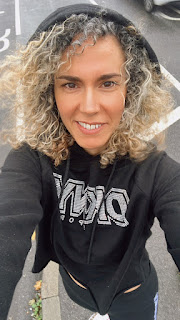Our silent world
Deaf people face unique challenges as pandemic drags on
For many, gaps in communication have only worsened
What's wrong with you? There's nothing wrong with you?
#HIDDENDISABILITIES
Many deaf and hard of hearing people have been alone in hospitals without consistent ways to communicate with doctors and staff. For deaf people — in hospitals, at work, in their homes — the COVID-19 pandemic has exacerbated gaps in communication access, from a lack of reliable technology to an underutilization of certain tools when people need them most.
ISOLATION IS INTENSIFIED FOR DEAF PEOPLE
I’ve learned to always be wary when I see [mentions of] accessibility, many times it is faulty or access that isn’t good enough. While social distancing has been hard on just about everyone, the isolation is intensified for deaf people because their access is so often an afterthought. Yeah, an afterthought.
For many people, face masks were one of the first, most obvious causes of trouble. I rely on lipreading to communicate with everyone from shop staff to neighbours to the dentist and more. With masks, I sometimes don’t even realize if anyone is talking to me which can lead to some pretty awkward encounters.
As masks became the norm, even people who didn’t realize they had hearing loss noticed they were struggling to understand speech. Around the beginning of the pandemic, audiologists noticed an uptick in patients coming in with concerns about their hearing. People who already had hearing aids were having more difficulty understanding speech. People with mild hearing loss, who weren’t previously using hearing aids, suddenly found that they couldn’t understand speech without them.
Some have pointed to masks with transparent windows to make communication easier for people who depend on lipreading and facial expressions. But they’re not widely used, and “the weakness is that it’s not something the deaf person can do or wear; the person we are trying to understand must wear them,” they also steam up and the reflection of the sun or the light makes them not good for the deaf community to benefit from.
“Masks create two barriers for individuals with any level of hearing loss,”. They reduce visual cues — mouth movement, facial expression — that support communication for people who rely on lipreading while also decreasing the transmission of certain frequencies of sound that lend to the clarity of speech for those that have residual hearing.
TRANSPARENT MASKS ARE A DIFFICULT TRADE-OFF
The materials used in transparent masks also dampen sound more than cloth masks, making for a difficult trade-off for people who use both residual hearing and visual cues to understand speech. The dampening effect is also a problem for people who don’t have hearing loss but struggle with auditory processing, as many autistic people.
Transparent masks aren’t the only imperfect solution. Every deaf person’s needs and preferences are unique, and sometimes one accessibility option isn’t enough. “When I had to get a COVID test I had a hard time understanding, it would have been easier for me to have someone email me or text me,” to explain the process.
Some people have been left with very few communication options because of the pandemic. Social distancing is particularly hard to navigate for Deaf-Blind people who use tactile BSL, which involves touching hands while signing. In many contexts, including hospital visits, tactile BSL is difficult to accommodate for: video calls aren’t feasible, and COVID-19 restrictions may prevent a family member or friend from assisting with communication.
“IT’S SOMETIMES MORE TO DO WITH ATTITUDES RATHER THAN THE TECHNOLOGY ITSELF”
While some accessibility problems are difficult to address even with multiple tools available, in many cases, it comes down to a lack of willingness to use existing technology like video captions and interpreting services. Over time, I see that technology is slowly catching up. “I do wish we could progress a bit faster because there are still lots of gaps though, and it’s sometimes more to do with attitudes rather than the technology itself.”
The proliferation of virtual events and remote work has made some things easier for deaf people, but there are still challenges.
So much is video-based, and so little of what’s video-based is accessible. I've been disappointed by many virtual events, which either had no captions or used frequently inaccurate auto-captions, in addition to missing out on family Zoom calls.
Between struggling with masks and being left out of everything from virtual hang-outs, job losses to COVID-19 briefings, many deaf people have found the pandemic taking a serious toll on their mental health. Life has been much more isolating. I had already struggled to communicate with people who don’t know BSL, now everyone is having zoom parties and stuff, but deaf people tend to be uninvited because we’re not as thought about and the lack of accessibility (small cameras, laggy Internet, etc) make it extremely difficult to take part in any of it.
Here are some useful links 💜💙
https://www.deafaction.org/resources/useful-links/
http://deafagency.co.uk/useful-links/
https://abilitynet.org.uk/news-blogs/9-useful-apps-people-who-are-deaf-or-have-hearing-loss
#DISABILITYHISTORYMONTH



This comment has been removed by a blog administrator.
ReplyDeleteThis comment has been removed by a blog administrator.
ReplyDelete